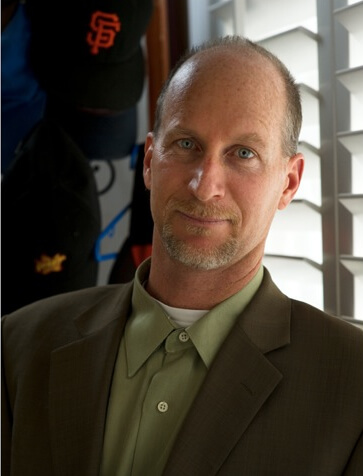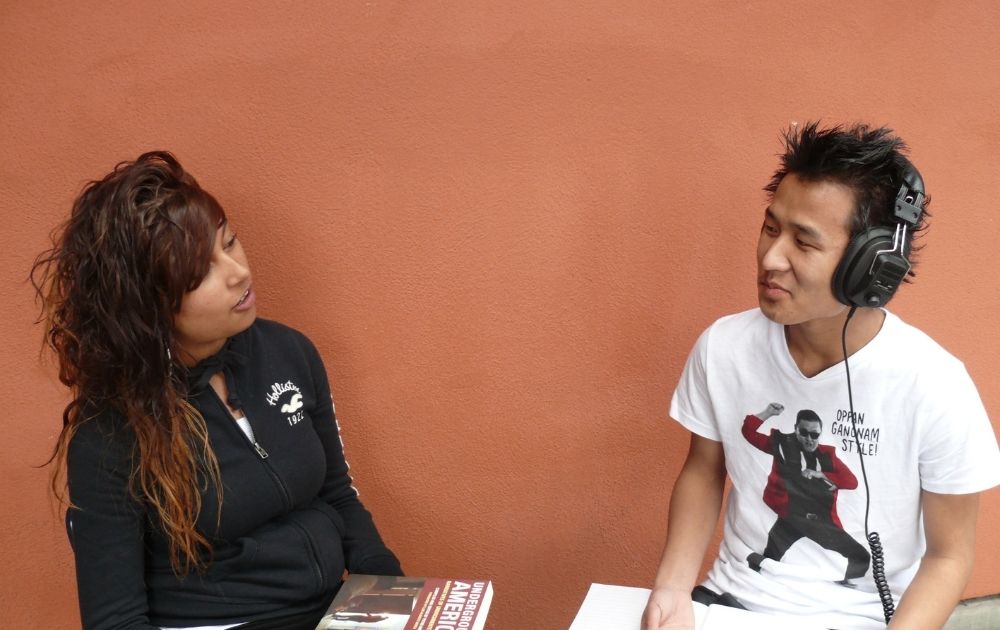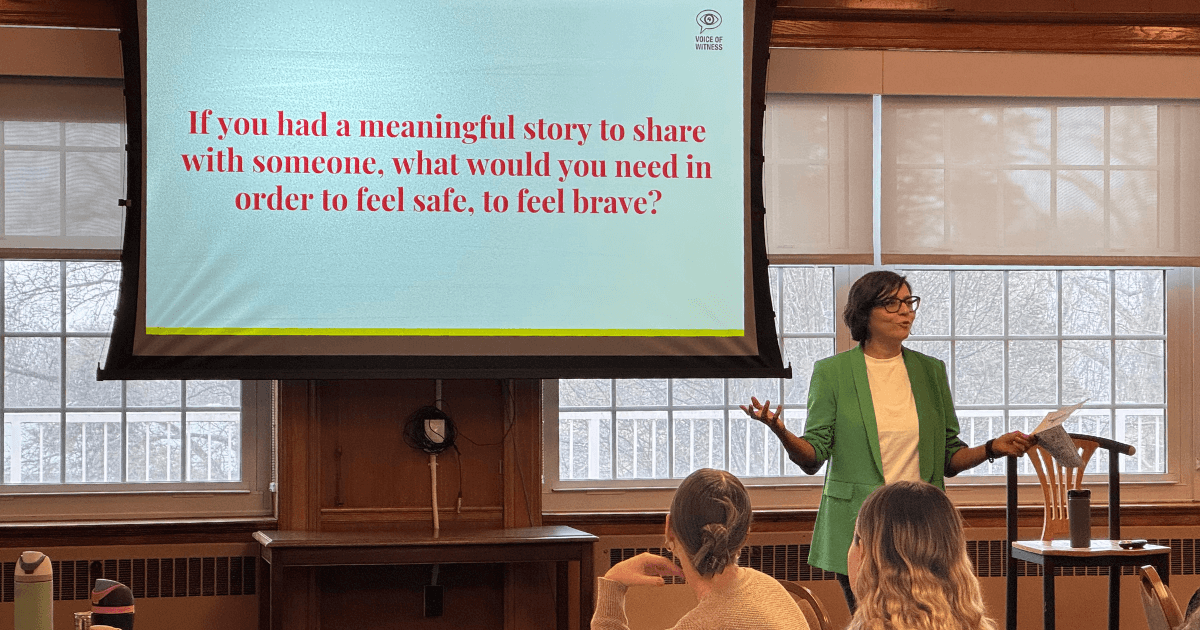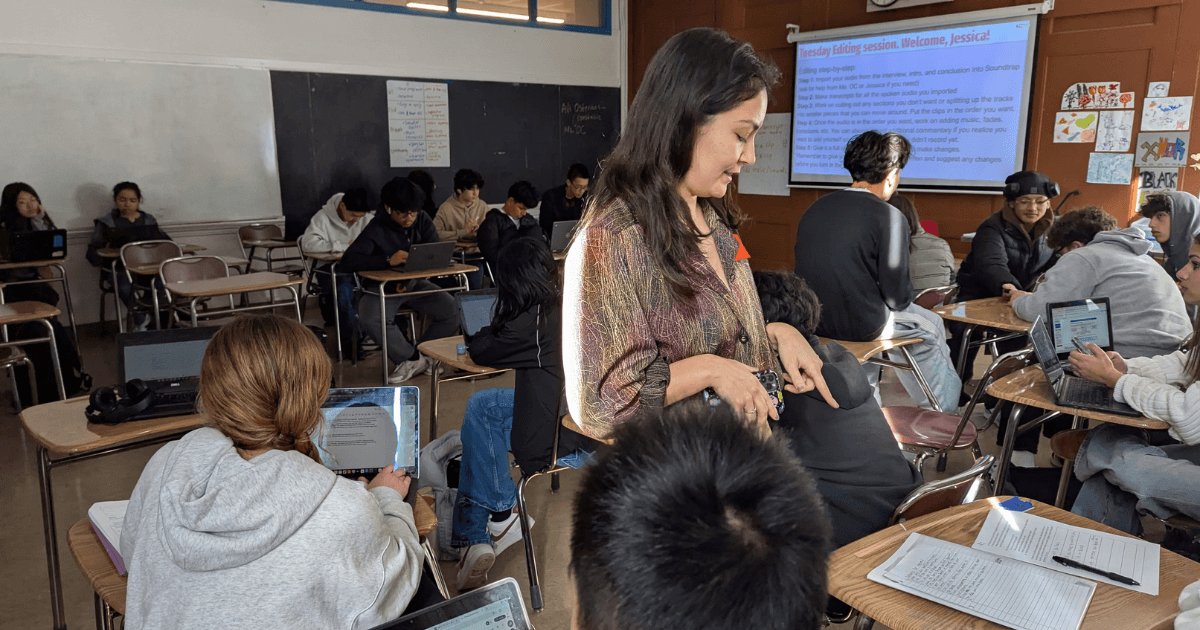
By Cliff Mayotte
Cliff Mayotte is the Education Program Director with Voice of Witness. He previously edited The Power of the Story: The Voice of Witness Teachers Guide to Oral History published in 2013 by Voice of Witness and McSweeney’s.
“We all have a story to tell.” These are the words that greet my 4th grade students as they enter my classroom every day.
At the beginning of the school year, I told them my story: who I am, what I do, when I was born, where I have lived, why I am a teacher, and how I came to our school.
I told them this story: “When I was your age, I carried a tattered journal, a Papermate pen and a pocket dictionary everywhere I went. I wrote about the people, places and things I saw with my eyes, heard with my ears, smelled with my nose, tasted with my tongue and felt with my hands. I put down on paper the ideas and feelings that were floating around in my head and my heart.”
And I told them this one: “I went to college at the University of North Carolina at Chapel Hill. I loved to read and write, and my family and friends told me I was a good writer. I majored in English there. I had some of the smartest, most accomplished professors in the country and they helped me become a better writer. I once sat in the office of my favorite teacher, Dr. Reid. A bust of Ernest Hemingway, one of my favorite writers who wrote one of my favorite stories, The Old Man and the Sea, was on Reid’s desk. He looked up from a story I wrote for our class and said, “You write like him,” as he nodded toward Hemingway. “You are clear, concise and compassionate. I am proud to be your teacher.”
“Will you tell me your story?” I ask my students.
“I want to say something to you as your teacher that will mean as much to you as the words my college professor said to me,” I tell them.
I have heard many stories—real stories that didn’t come out of any book but that came right out of the lives of children—in my work as an elementary school teacher.
“Mr. Barton, the thing I want to be when I grow up is a high school football coach,” said Shenice, a 9-year-old girl in one of our third-grade classes. Other people told me she was obstinate, disruptive and incorrigible, but I wasn’t interested in their stories about her. I was interested in her story about herself. By the end of the year we were running up and down the playground, blowing a whistle and practicing calling out offensive and defensive plays and planning the steps she would have to take to become the first African-American, female high school football coach in South Carolina.
Isis, a 7-year-old girl in one of our second-grade classes, wrote, “I am from Honduras. I loved my home. But I was afraid there. My dad carried a gun. I was always afraid we would be killed.” Other people told me she was a child from an undocumented family that lived in the shadow of my community, but I wasn’t interested in their stories about her. I was interested in her story about herself. By the end of the year, we were reading the book Amelia’s Road by Linda Jacobs Altman and Enrique O. Sanchez and building her road to become a doctor for migrant children in South Carolina.
And then there was James, a 10-year-old African-American boy in one of our fourth-grade classes. “You won’t believe this, Mr. Barton, but I’m going to be a writer.” Other people told me he couldn’t read, was a slow learner, and could never become an exceptional reader and writer. I wasn’t interested in their stories about him. I was interested in his story about himself. By the end of the year, he was writing moving poetry, scoring proficient in English Language Arts on the Palmetto Assessment of State Standards and making his way toward becoming the Langston Hughes of his generation.
Langston Hughes told his own story in a poem called “Aunt Sue’s Stories.” In the middle of the poem he writes:
And the dark-faced child, listening,
Knows that Aunt Sue’s stories are real stories,
He knows that Aunt Sue never got her stories
Out of any book at all,
But that they came
Right out of her own life.




